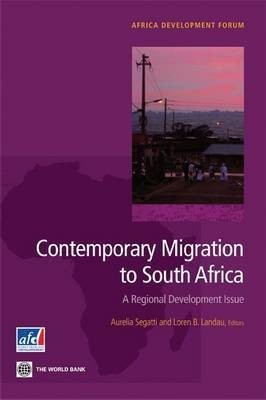Contemporary Migration to South Africa(English, Paperback, unknown)
Quick Overview
Product Price Comparison
Building on global interest in migration development, the volume draws attention to one of the most important migration systems in sub-Saharan Africa. It reviews South Africa's approach to international migration in the post-apartheid period from a regional development perspective, highlighting key policy issues, debates, and consequences. The authors find at least three areas where migration is resulting in important development impacts. First, by offering options to those affected by conflict and crises in a region that has limited formal disaster management and social protection systems. Second, by mitigating shortcomings and distortions in regional labour markets. Third, by providing support to struggling rural economies and ever expanding urban areas in terms of livelihoods and social capital transfers. Chapter One consists of a study of the country's historical experience of migration and, in particular, analyses the changes in official attitudes throughout the twentieth century, indicating the roots of contemporary ideas and policy dilemmas. Chapters Two, Three, Four and Five complement this analysis of the South African State's capacity to reform and manage the South African migration situation by looking at often neglected dimensions: the first explores the question of skilled labour, a crucial question given the unbalanced structure of the South African labour market; the second examines the impact of migration on local government in South African cities and specifically implications for urban planning, service delivery, health, security, and political accountability; the third analyses the nature of undocumented migration to South Africa and the challenges it raises to both State and non-State actors; The book concludes with an examination of health as a critical issue when examining the relationship between migration and development in South Africa, in light of recent empirical data.


